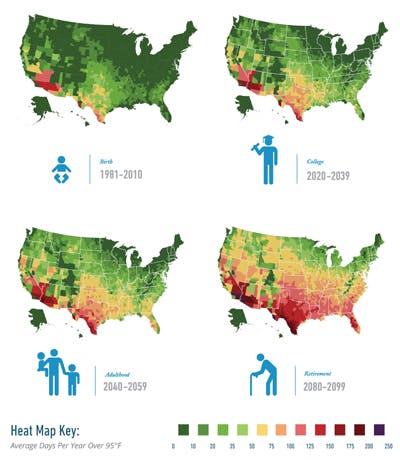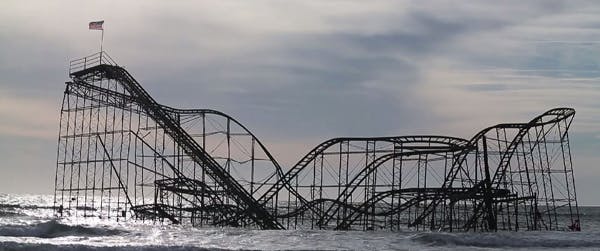Yesterday a bi-partisan group of political and financial leaders said that climate change will cost the U.S. economy billions of dollars a year if action isn’t taken to slow it down. They called their report Risky Business.
Scientists, business leaders, and political figures are telling us that the need to deal with our changing climate is urgent. The UN’s panel of climate science experts report more certainty than ever (95%) that humans are causing the climate to change. They say the impacts are being felt in every country in different ways, and the solutions exist for us to do something about it. Time and again the message is clear when it comes to dealing with climate change: The most radical and costly approach is to do nothing at all.
The stability of our climate affects the health of the food we eat, the air we breathe, and the land and water upon which lives and livelihoods depend. Industries from agriculture to tourism to real estate and health care all feel the impacts of drought, sea level rise, ocean acidification, and more extreme weather.
An outspoken conservative governor, Lee Dreyfus, once said the federal government’s role should be limited to “defending our shores, delivering our mail, and staying…out of our lives.” Agree with that statement or not, our shores are definitely at risk.
If we stay on our current path, as Risky Business put it, some homes and commercial buildings with 30-year mortgages in places in Virginia, North Carolina, New Jersey, Alabama, Florida, and Louisiana could be underwater – literally as well as financially – before the note is paid off. 
On the other hand, the report makes clear, if we act aggressively to adapt to the changing climate and minimize future impacts by reducing our emissions, we can significantly reduce our exposure to the worst economic risks from climate change.
The risks of inaction are great, but the opportunities for innovation and economic growth are even greater. By moving to low-carbon energy – especially renewables like wind and solar – and cutting out energy waste, we can reduce pollution, create new jobs and businesses, and put our future on a sustainable path. It is not too late to avoid the worst impacts of climate change.
Former Treasury Secretary Hank Paulson was one of the leaders of the Risky Business project. Writing in the New York Times, he said: “Taking a cautiously conservative stance — that is, waiting for more information before acting — is actually taking a very radical risk. We’ll never know enough to resolve all of the uncertainties. But we know enough to recognize that we must act now.”
As the Risky Business report concludes, “This is not a problem for another day. The investments we make today—this week, this month, this year—will determine our economic future.”
Take Action: Visit Climasphere.org to learn more, and add your voice on Twitter with the hashtag #ActOnClimate!



 View All Blog Posts
View All Blog Posts